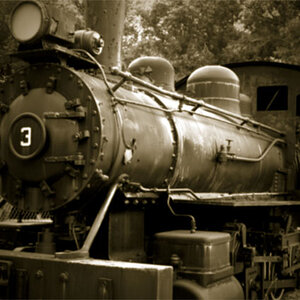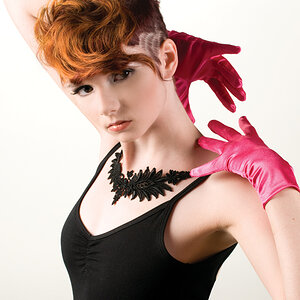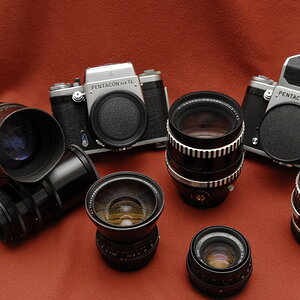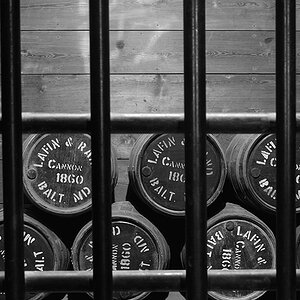hamlet
No longer a newbie, moving up!
- Joined
- Sep 12, 2013
- Messages
- 2,894
- Reaction score
- 435
- Location
- Belgium
- Can others edit my Photos
- Photos OK to edit
Looking at that extreme plant crop, I see a few things. 1)shallow depth of field, but then, that's obvious 2) a very slight doubling of the "lines" on the small parts of the plant. The "lines" are not distinct, but very subtle, like those caused by movement of either the plant, or the camera. Using VR when on a tripod can cause a feedback loop in the VR system, and can cause a similar type of movement. However, photographing plants outdoors at slowish speeds like 1/80 second, also sets you up for failure on things like what is called subject motion blur. One of the bigger issues with high-resolution images, and 24 megapixels on APS-C is definitely high-resolution, is that slower speeds WILL SHOW the slightest movement of the subject, or the camera, or the combined movement of the camera and the subject. The old idea that 1/focal length is a "safe" hand-holding speed is not true at high-resolution image levels, and it also totally neglects to factor in any kind of movement of the subject.
If "all of your pictures" are shot at slow speeds, it's likely that there will be subject movement visible when you zoom way in. I shot some photos of people who were just,literally, standing around outdoors, talking. I used a 70-300 VR lens at 1/320 second on a 24 MP camera...and guess what...when I zoomed in all the way, I could literally SEE MOVEMENT on 1/320 second shots. Hair blowing in the wind. Faint jagged edges on the arms and legs and ears--from the subjects' own movement!
Start thinking about using higher ISO levels, in order to get to 3x the focal length if you really want to start shooting for poster-sized images. You cannot sharply capture a lot of things at slowish speeds like 1/80 second, reliably. In fact, at speeds like that, it's often best to take 10 to 12 frames, and when you start looking through them, you will begin to see the very slight effects of less-than-perfect technique and less-than-perfect focusing, camera work, and so on.
I'll try this first thin in the morning.


![[No title]](/data/xfmg/thumbnail/37/37604-7ad625e983f92f880eb65a264eeef5e4.jpg?1619738148)

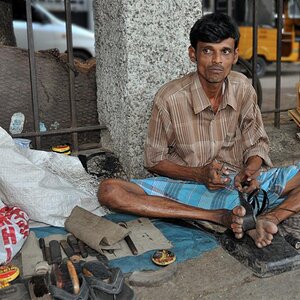
![[No title]](/data/xfmg/thumbnail/33/33360-ff0b69685c94740bde3f53b6d7aa9af1.jpg?1619735924)
![[No title]](/data/xfmg/thumbnail/37/37605-90c8efaef5b7d1f52d4bf8e7dfd33673.jpg?1619738148)
![[No title]](/data/xfmg/thumbnail/30/30987-a33ca8e90b5d786c21e59d37945b9cc6.jpg?1619734552)

